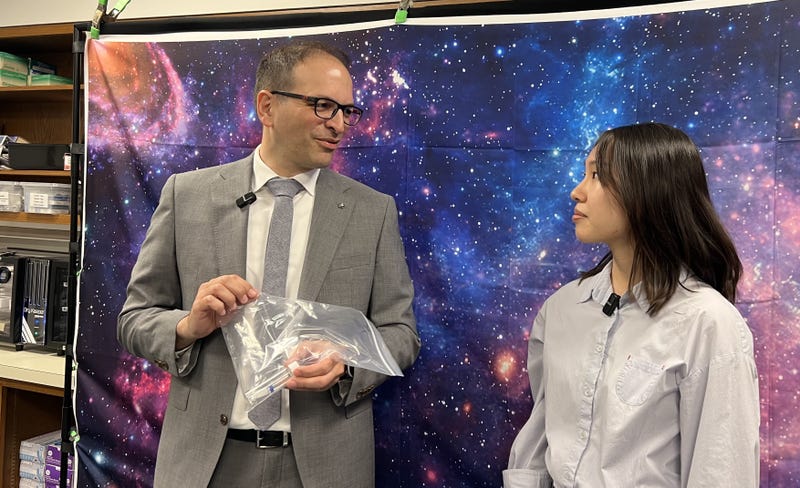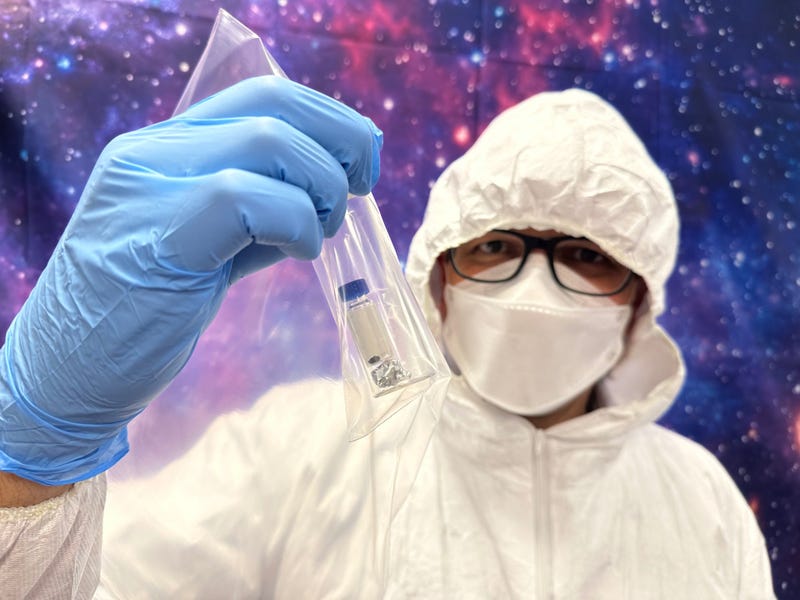
Philipp Heck said leading the study of a nearly five billion year old asteroid sample is the "highlight of my career."
"We are very excited to have a piece of asteroid Bennu here that was collected by NASA's OSIRIS-REx space mission," he said. "This was collected in the year 2020. It arrived on Earth in 2023."
Heck is the Curator for Meteoritics and Polar Studies. He is one of the researches studying the sample, which the Field received last week.
Heck said NASA's mission was the first asteroid sample return mission led by the United States and it collected Bennu directly from space in "pristine condition," or without exposure to Earth's atmosphere, which makes it particularly valuable.
"That's why NASA selected this asteroid," he said. "Because it's so old. It's from the earliest days of the solar system, from 4.6 billion years ago. We know that by studying it. It hasn't changed since it formed."
He said this means the sample may contain the same organic chemicals and amino acids, or the "ingredients," that formed life on Earth.
Over the next couple of months, Heck, along with University of Chicago resident grad student Yuke Zheng will be studying the sample.

He said though tiny, the sample could have some big implications for the origins of the Solar System and life itself.
"This is, essentially, the origin material from which we are formed," he said. "This is our ancestor, essentially, in nature, from which we formed ... Anything we can learn from this will help to complete our understanding of the origin of our solar system, of life, and we get a better understanding of our connection to the cosmos."
The Field will have the sample through August before returning it to NASA. Due to its rarity, it will not be on display to the public.
